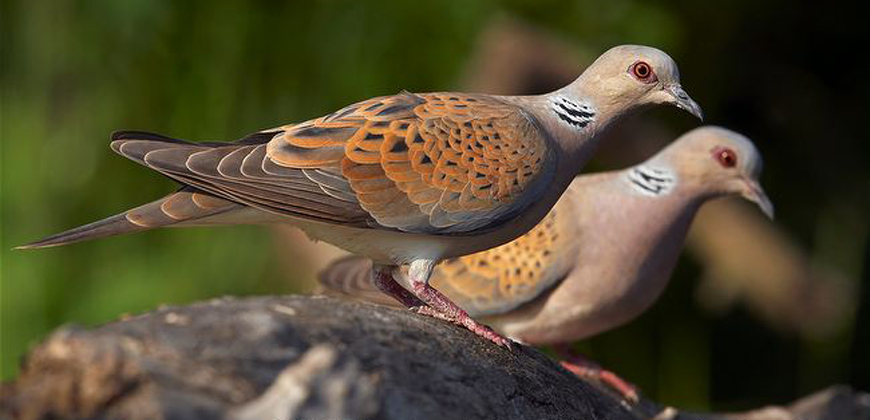AMMAN — The International Union for the Conservation of Nature (IUCN) has uplisted the turtle dove, a migratory bird widely sought after by hunters, to vulnerable under its Red List of Threatened Species.
The uplisting from the least concern category to the vulnerable category is due to a rapid decline in the population of turtle doves in much of its European range, whilst in Russia and Central Asia it is thought to have experienced more severe declines, according to the IUCN Red List website.
The loss of foraging and nesting sites as well as disease and hunting along its migration routes are among the main factors causing the decline in the turtle dove population, according to the IUCN Red List, which evaluates the conservation status of plant and animal species globally.
The IUCN suggested several conservation actions for the bird species, including the management of its breeding and staging habitats and placing restrictions on hunting.
Abdul Razzaq Hmoud, director of the conservation and hunting regulation section at the Royal Society for the Conservation of Nature (RSCN), said that starting next year, hunting of turtle doves will no longer be permitted.
The RSCN announces every year a hunting schedule for bird species which is based on field studies assessing their population and status. The society usually announces the opening of the hunting season of turtle doves among other birds in June and closes it in September.
"Turtle doves were announced as a vulnerable species at the end of the hunting season; therefore, the society will start informing hunters that it is no longer allowed to hunt this bird species," Hmoud told The Jordan Times.
Adult turtle doves feed on the ground, mainly on cereal and wildflower seeds and the occasional insect, according to the IUCN, which said that the 27-29 centimetre bird returns from its wintering grounds around late April and immediately starts nesting.
"Turtle doves usually pass through Jordan in summer between the months of July and September. They are mainly spotted in the Jordan Valley and adjacent areas," Hmoud explained.
The RSCN urged hunters to abide by its regulations to sustain hunting activities in the country and preserve wild birds and animals.
Under the society's regulations, those who hunt outside the allotted period are fined JD100 and sentenced to one week in prison, while those who kill endangered species, such as falcons, are fined JD2,000 and handed four-month prison terms.
In addition, violators’ weapons are seized, according to the RSCN.
The location of hunting activities changes according to the season, with hunters mainly active in the Jordan Valley, mountainous areas and the Eastern Badia, according to the society.
In 1973, the government gave the RSCN, an independent nonprofit NGO, a mandate to regulate hunting and protect the Kingdom’s wildlife.
Between August and December, the society renewed and issued 1,600 hunting licences, Hmoud highlighted.
